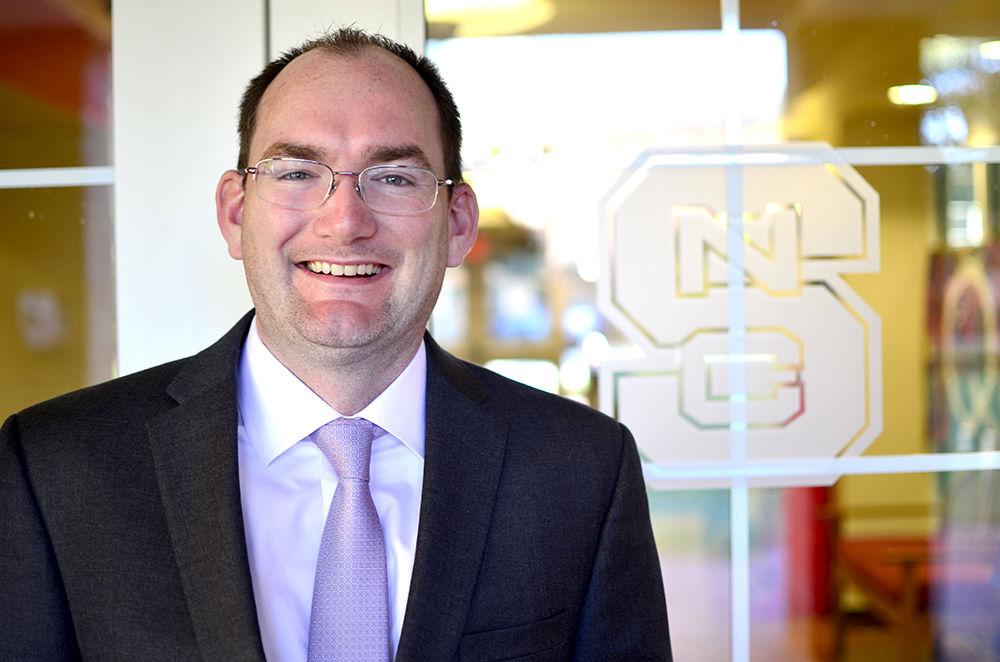Tom Hardiman is the new director of NC State’s Office of Student Conduct. He succeeds Paul Cousins, who Technician interviewed when he retired this summer. Hardiman previously served as Associate Director of UNC-Chapel Hill’s Office of Student Conduct.
The entire interview with Hardiman was released Monday as a bonus episode of our podcast, Dialogue with Technician, which you can find on iTunes, Overcast, and most other places podcasts are available. Here is an excerpt from the interview.
What is the general purpose of Student Conduct?
The purpose of Student Conduct is to educate students.
We are an arm or an extension of the overall mission of the institution [NC State], which is to educate students and be able to graduate productive citizens of our society and our state. With that, the function of our office is to intervene when there’s been incidents where a student’s behavior doesn’t meet the expectations of our community. We meet with that student, ideally educate them so that they are able to reflect on their actions, be held accountable for their actions both through the institution, but also more importantly personally accountable.
I can’t stress [enough] the importance of a student coming through our process and being able to understand how their behavior may be in conflict with our expectations. That ability for them to take personal accountability for their actions is huge. Then we ultimately work with them to set up a plan to be able to educate them and make sure this behavior doesn’t happen again.
What are Student Conduct’s main current objectives?
One of the big things I want to bring to the table is to really be more of a proactive presence on campus.
Many people, as I’ve had my transition process here, see our office as purely reactionary. What I’m working on and working with our staff on is really trying to get out more in the community and educate people, educate folks about our expectations, and what they need to think about being a member of the community here.
Ultimately — and you’ll find this a lot with 18-24 year-olds — helping students understand that while you may not think your behavior has impacts on others, it can. We do a lot of that work on the back end, so we really want to get out there and do that work on the front end [and] help students understand it.
Maybe when they’re faced with that decision of “should I do this or should I not?” they can think back to when they attended that presentation, think about your actions and how they impact others, and maybe that will help tip the scale a little to make that decision that’s actually going to be beneficial for everyone.
What are the most common/prevalent reasons for visits to Student Conduct?
I would say, if you were to break down our expectations of students down into two areas, you have the academic violations and the non-academic violations.
In the non-academic sense, I don’t think it’s going to surprise any of the [readers] out there, this idea of underage alcohol consumption and the use of illegal drugs is pretty prevalent and typically makes up the majority of our caseload for non-academic misconduct.
Outside of that, on the academic side, that’s where you see more of the plagiarism, the cheating, the aiding and abetting and collaborating in an unauthorized way.
There’s easy preventative solutions for that: being able to make sure that you’re managing your time well, using the resources that are free to you on campus to have someone review your paper, and making sure what you think isn’t plagiarized work actually is because you didn’t do a good enough job of paraphrasing appropriately.
Generally, it’s faculty members who are funneling those [incidents] to us, and the faculty member actually has the opportunity to meet with the student and discuss it. The two of them can actually resolve it should the student wish to. We are a touchpoint for that process, and if the student has any questions, they can ask us.
If the student feels they are being wrongfully accused, they can come through [us] as well and we will actually take a deeper look at it and go through a formalized process to resolve it.
What do you hope to personally accomplish moving forward?
I have some pretty big shoes to fill; I am replacing an individual who had been here close to 30 years. One of the things I encourage folks to think about with our office is that [we] are really here to be an educational arm. We don’t fashion ourselves to be the bad guys; we really fashion ourselves to be partners in students’ success.
Ultimately, we want to educate the whole student. We understand that things happen, people make mistakes, and I have this motto that is essentially “mistakes show us what we need to learn.” We want to be the partners [who] help those students figure out what they need to learn.








